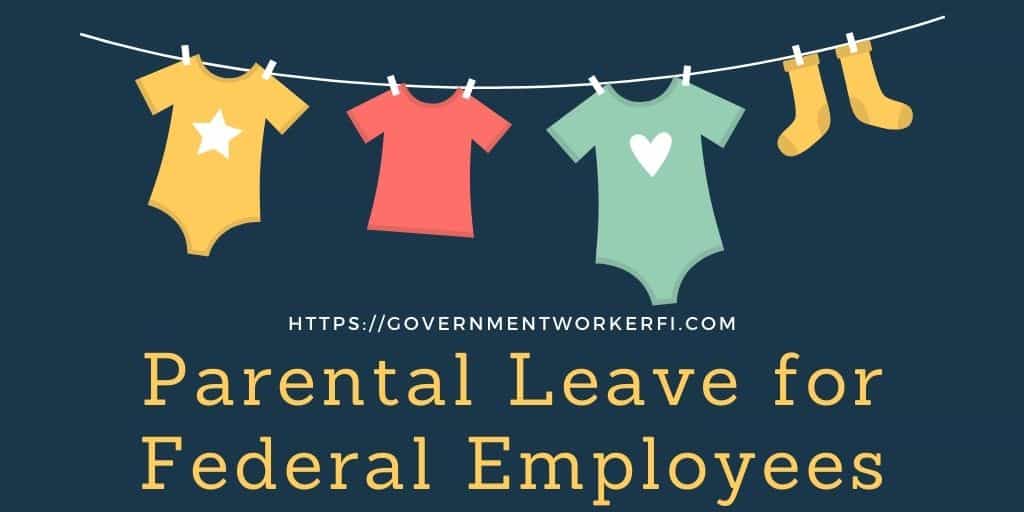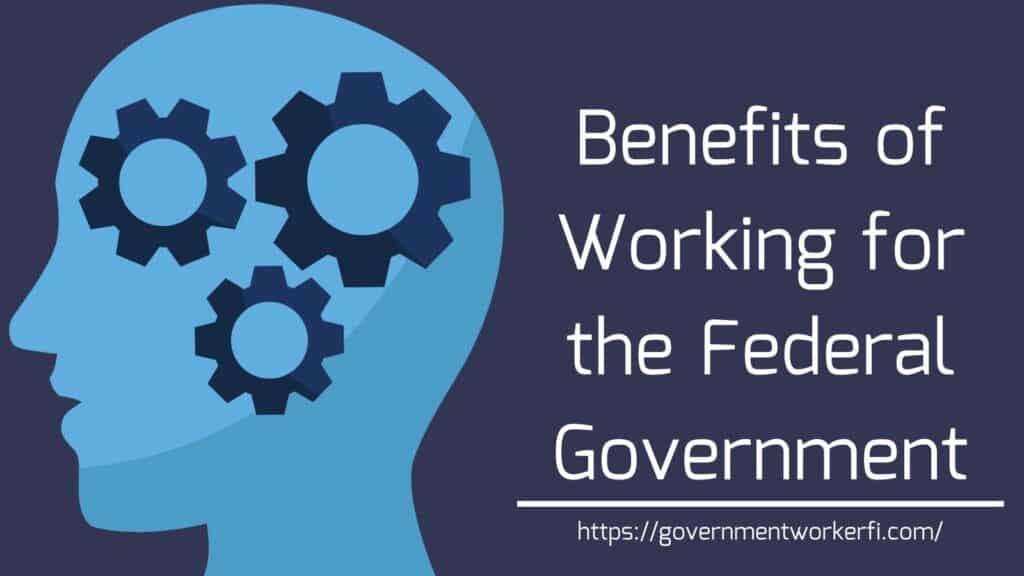Nobody likes collecting money from an insurance company. If the insurance company is sending you a check, that means something bad just happened to you.
Maybe you got into a car accident. Maybe a hail storm destroyed your roof. There’s probably a million reasons that you could get a payout from an insurance company and none of them are pleasant.
Of course, there’s one type of insurance payout that is especially difficult to think about; life insurance.
As humans, we’re hard-wired to deny our own mortality. But that doesn’t mean that we can ignore it. Setting our financial affairs in order, through estate planning and/or life insurance, can help our loved ones after we pass. Federal Employee Group Life Insurance (FEGLI) is one option you can use for estate planning. In this article, I explains what happens to FEGLI in retirement.
Get Gov Worker’s top 4 tips for federal employees!Table of Contents
- What is FEGLI and how does it work?
- Special rules about FEGLI Basic in Retirement
- How much do FEGLI Options B and C cost in retirement?
- General requirements to carry FEGLI into retirement
- Do retirees even need life insurance?
- Is FEGLI a good deal?
- Summary- FEGLI has some unique aspects in retirement
Please do not confuse my personal blog for financial advice, tax advice or an official position of the U.S. Government. This post may contain affiliate links. If you make a purchase after clicking on a link, I get a small percentage of the sale at no additional cost to you.
What is FEGLI and how does it work?
Like everything in the government, the Federal Employee Group Life Insurance (FEGLI) program is super complicated.
Because it’s complicated, I interviewed expert Brian Sigwart to help me write this post.
Brian Sigwart is a certified financial planner with Cummins and Associates Financial Group. He focuses his practice on educating federal employees how their benefits work. If you want to speak to a certified financial planner who knows federal employee benefits, you can contact him here.
Understanding the options
One confusing part of FEGLI is all of the different options you have.
- FEGLI Basic provides a death benefit of 1-year’s salary* and is partially subsidized by the Government. You need to enroll in FEGLI Basic to participate in any of the options. This option costs the same amount no matter your age. However, younger employees get a bonus called an “Extra Benefit” which increases their coverage.
- Option A provides a death benefit of $10,000. The cost of Option A increases as you age.
- Option B provides a death benefit equal to 1,2,3,4 or 5 times your salary (you can choose which multiple you wish to pay for). The cost of Option B increases as you age.
- Option C provides coverage for your spouse and eligible children.
* The death benefit is technically 1 year’s salary rounded up to the nearest thousand dollars plus an extra $2,000.
While FEGLI basic is partially subsidized by your employer, you may be able to find a better deal on life insurance outside of the government. However, there are some unique aspects of FEGLI (especially in retirement) that may make FEGLI an attractive option for your situation.
Special rules about FEGLI Basic in Retirement
I wanted to write this post because I had a vague awareness that some stuff happened with FEGLI in retirement but I didn’t know what. After talking with Brian, I now understand why this is such a hot topic with retirees.
The main takeaway is this:
If you choose a 75% reduction in FEGLI benefits after you retire, it becomes free at retirement or age 65 whichever comes later.
In other words, if you have FEGLI basic, you get the benefits of a permanent life insurance policy with no cost after age 65 equal to 25% of your salary.
Also, you should know that this benefit also applies to FEGLI Option A- which would give you a free $2,500 addition to your death benefit if you were enrolled.
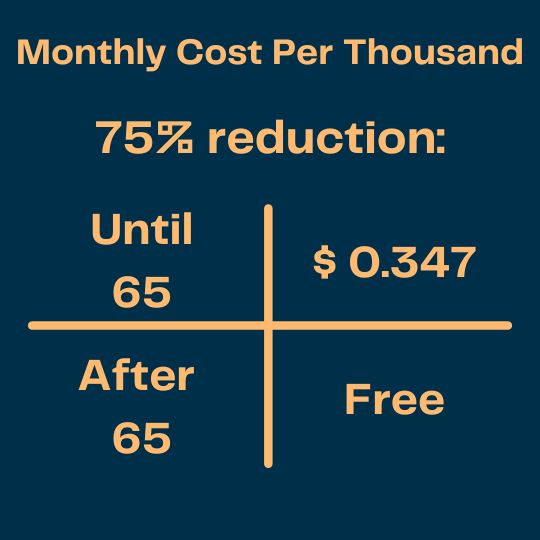
You don’t need to take a 75% reduction in death benefit upon retirement
While many federal retirees choose to take a 75% reduction in death benefits upon retirement to take advantage of the free coverage after age 65, there are other options. You could choose to take a 50% reduction in your benefits or no reduction in your benefits. However, you have to pay extra for these benefits.
If you take a 50% reduction, you pay $0.75 per $1,000 in death benefits per month after age 65. However, if you retire before age 65, you need to pay the full cost of basic as an active employee ($1.0967) until you reach age 65.
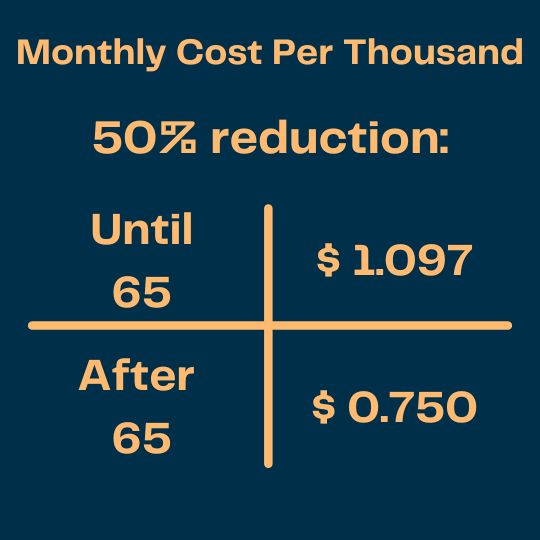
If you want to keep your entire death benefit (i.e. no reduction) it will cost $2.25 per $1,000 in death benefits per month after age 65 and $2.5967 per $1,000 in coverage from the time you retire until you reach age 65
If you want a death benefit equal to 1 year’s salary in retirement, you might want to mix and match FEGLI and private insurance
There’s no denying that the 75% reduction FEGLI coverage after age 65 is a good deal (it’s free). However, you may be able to find a better deal on life insurance if you want to cover 50% or 100% of your salary. In that case, you can still take the free 25% of your salary from FEGLI and find a private policy to cover the other 75%.
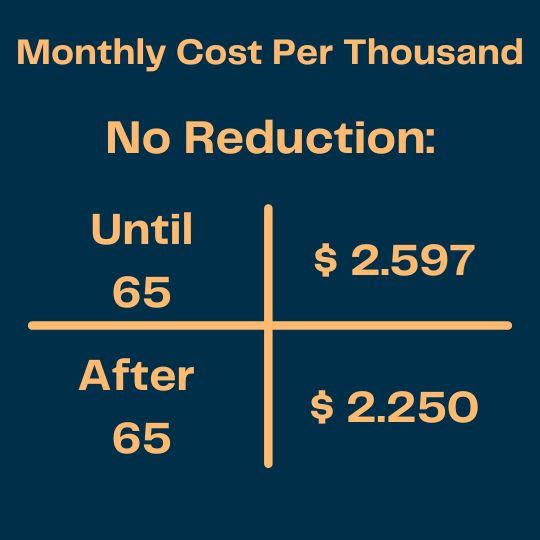
How much do FEGLI Options B and C cost in retirement?
FEGLI Options B and C cost the same amount whether you’re current or retired federal employee. The costs for these options is based upon 5-year age bands (and the cost approximately doubles every 5 years).
If you want to know exactly how much it costs, you can go to the Office of Personnel Management’s FEGLI Calculator.
General requirements to carry FEGLI into retirement
Just like there are special rules about carrying FEHB into retirement, not everyone is eligible to retire with FEGLI.
In order to have FEGLI in retirement, you need to carry it for 5 years prior to your retirement. If you don’t enroll in FEGLI when you start with the federal government, you need to wait until you have a qualifying life event or a (rare) FEGLI open season. You can’t plan on the government creating a FEGLI open season exactly 5 years before your retirement date so this may require a bit luck if you are not enrolled in FEGLI now but want to carry FEGLI into retirement.
Your FEGLI will not automatically continue into your retirement. You will need to fill out form SF2818, “Continuation of Life Insurance Coverage” and return that to HR as part of your retirement package.
Do retirees even need life insurance?
Part of the reason I have been reluctant to write about FEGLI on the blog is that I don’t own life insurance. My wife and I dropped our term life insurance coverage after we had amassed enough wealth that we felt our spouse and children would be set in case of an unexpected death.
I was also pretty clueless about why someone would need life insurance in retirement. I assumed that if you retired, you had some sort of a nest egg to provide for you and your spouse for a foreseeable future and that whatever you didn’t spend would be inherited by your spouse and used to pay for their expenses for the remainder of their life.
What I didn’t realize is that some people use life insurance as a way to leave a legacy for their spouse and/or adult children since life insurance passes tax free to beneficiaries. Brian told me that the most common age for people to take out a permanent life insurance policy is age 70. Yes, life insurance costs a fortune for a 70 year old because their risk of death is high, but apparently some people use their required minimum distributions to buy life insurance to try to pass money along to the next generation.
Permanent life insurance
Paying for extra FEGLI coverage (or any term coverage) in retirement is going to be expensive. If you know that you want life insurance to be part of your legacy strategy you may want to consider permanent life insurance (or whole life insurance).
If you know you want permanent life insurance, there is a little known “Voluntary Group Whole Life Insurance for Federal Employees” that can be paid for through payroll deduction. Unlike FEGLI you can’t enroll through your HR office but need to talk with a qualified agent, like Brian. The Voluntary Group Whole Life Insurance for Federal Employees program has no medical exam, lasts for your entire life, and has a chronic care rider where it would pay up to 75% of the death benefit to cover long term care. The prices stay fixed for the entire life of the policy.
Please do extensive research to see if any financial product, including permanent life insurance, is a good fit for your financial situation before investing. This blog is for informational purpose only and does not advocate for or against any financial product.
Is FEGLI a good deal?
When I did carry life insurance, I had FEGLI for a while until I met an insurance salesman who sold me a term life insurance policy for much less than FEGLI costs. I had just assumed that FEGLI was a bad deal. So I talked with Brian about whether FEGLI is a good deal or a bad deal.
Brian said that Basic may be a good deal. The cost of Basic insurance is shared between you and the Government. You pay 2/3 of the total cost and the Government pays 1/3. Also, if you know that you want to carry some life insurance in retirement, you can get the free 25% of your final salary coverage after age 65 for free.
Brian also said that Option C may be a great deal because it covers your spouse and children for one low cost. (However, it is important to note that the government will not drop this option for you if you get divorced or if your children age out of the policy. So remember to reevaluate option C if you have a life event.)
Those points aside, if you need a term life insurance policy, you may want to shop around and compare the cost of Option B to life insurance you can find in the private marketplace.
Summary- FEGLI has some unique aspects in retirement
I certainly learned a lot writing this post. And the free coverage with a 75% reduction in FEGLI benefits in retirement was a benefit of working for the federal government that I hadn’t considered before. Life insurance is a personal decision. If you need help understanding how life insurance fits into your personal retirement plan, you may wish to talk with a certified financial planner or other credentialed expert to help you make the right choice for your situation.

